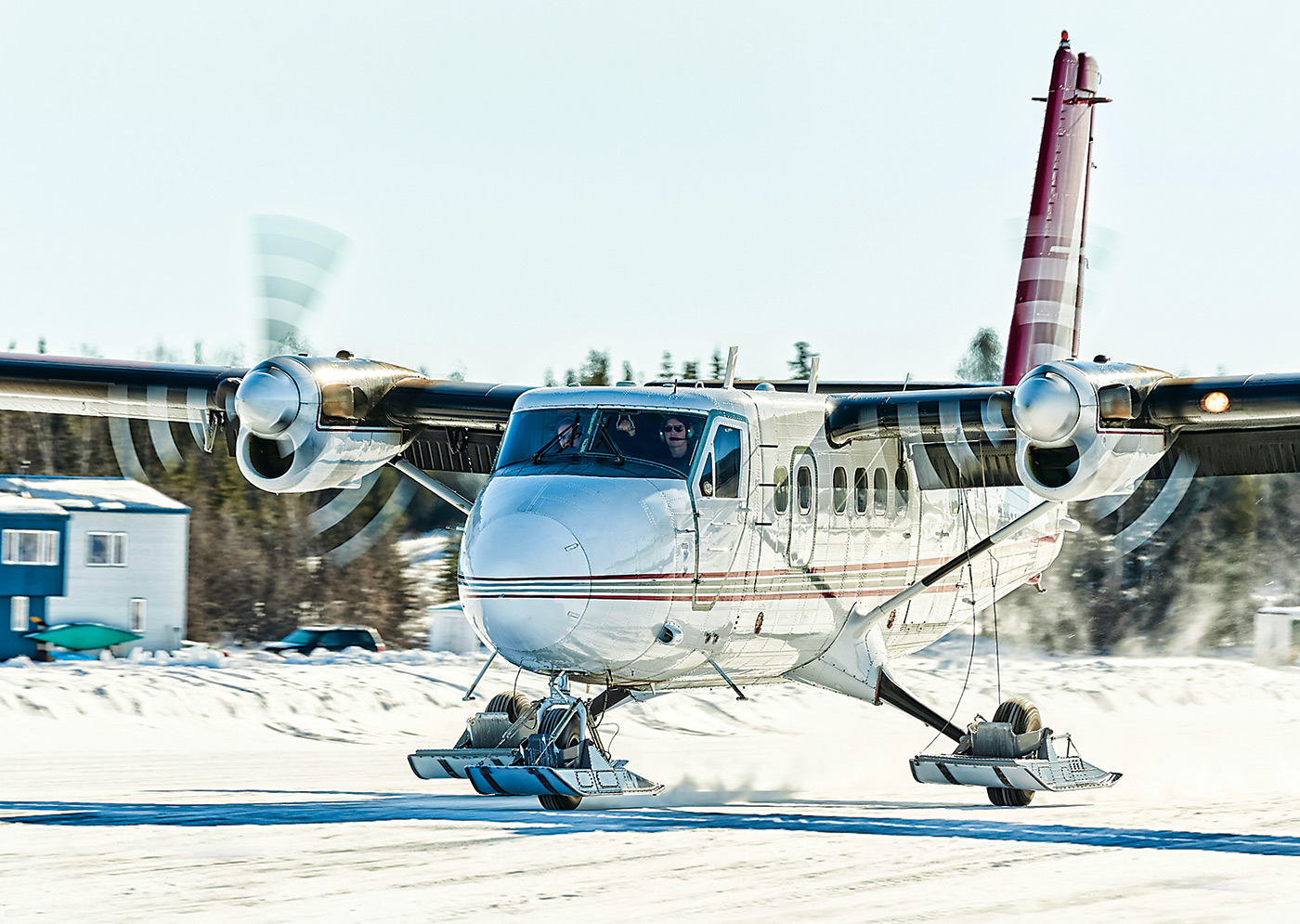Estimated reading time 16 minutes, 27 seconds.
Since last August, Royal Canadian Air Force (RCAF) CC-130J Hercules aircraft have airlifted more than 1.46 million pounds of cargo in support of Operation Presence-Mali in West Africa.
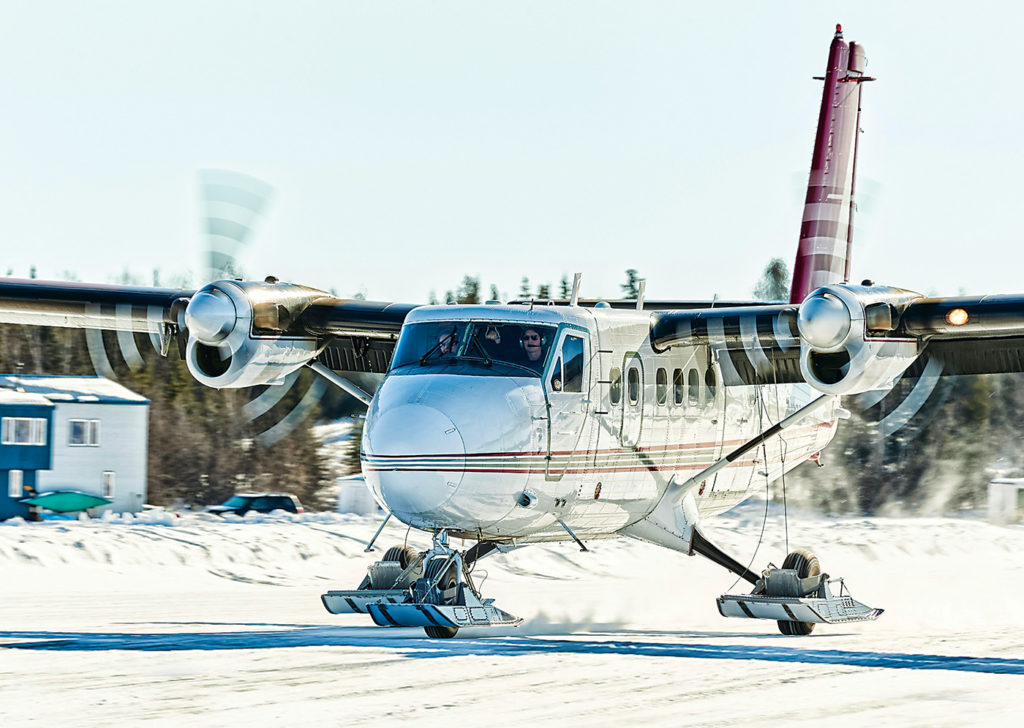
It’s a safe bet that all of that cargo was strapped to specially constructed pallets made by Genaire Limited in Niagara-on-the-Lake, Ont. With their distinctive Canada stamp, the company’s pallets stand out on the ramps of military bases around the world. But that’s not the only thing that makes them unique.
In 1986, Genaire developed a patented aluminum honeycomb core for military pallets that offers two advantages over the traditional balsa wood design used by forces around the world. First, the aluminum contributes lightweight strength and dependable durability. Second, and perhaps more important, it ensures the recyclability of an item that had previously been largely disposable.
“As soon as [balsa wood pallets] get water or moisture or contaminants in them, there’s no way to get it out of the wood,” explained Genaire CEO Melissa Warner, who co-owns the company with her brother, Chris Warner.
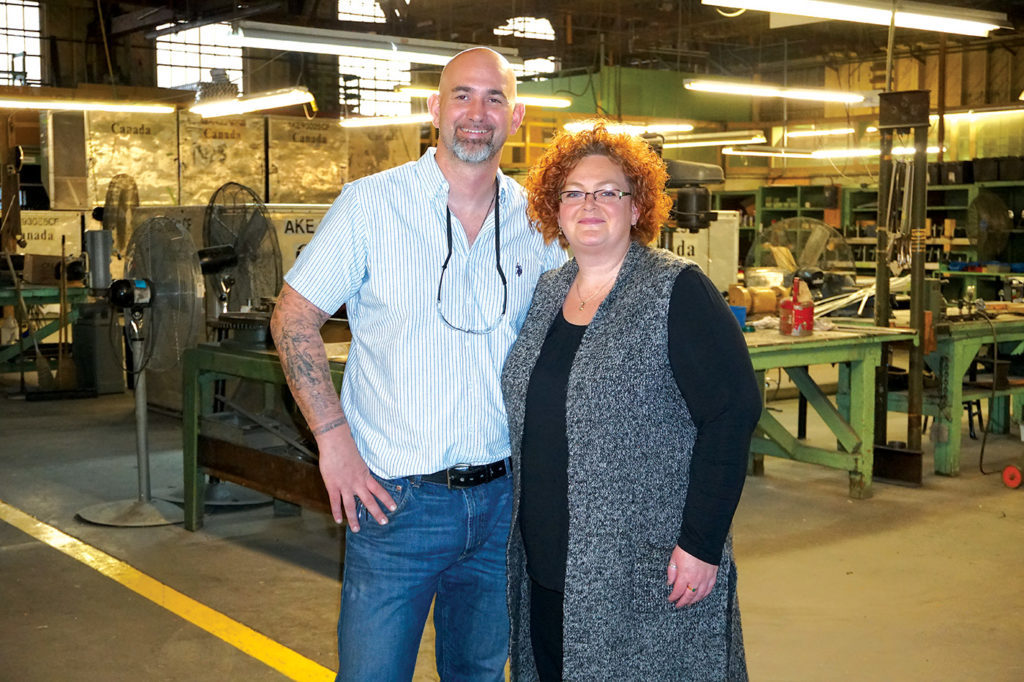
“Our engineer developed an aluminum honeycomb core so the structure is there, and it’s all metal. So as much as water can get in it, it can also be washed out, and the pallet can be decontaminated.”
Dubbed the SK338 pallet, i was adopted by the Department of National Defence (DND) as the Canadian military’s main pallet, and is currently used to transport all military cargo. Genaire even developed a pallet stacking system that separates unserviceable pallets from serviceable units, enabling crews to easily bundle them up for repair and overhaul at the company’s 25,000-square-foot Plant 1 at Niagara District Airport.
On average, about 50 to 60 pallets are rotated in every three to four months, with Genaire sending the same number of serviced units back to DND in a return shipment.
Engineering Solutions
Chances are also good that as the Mali cargo was being loaded onto the CC-130J Hercules aircraft, crews were making good use of another Genaire invention: bumper boards.
“DND came to us with a problem stemming from the loading of pallets on the J-model Hercs,” explained Melissa. “We knew we could figure out a solution.”
Genaire sent its engineer and operations manager to 8 Wing Trenton, Ont., where they observed the loading process of the CC-130J and subsequently created the Hercules bumper board–a highly visible, low profile, aluminum and rubber-backed buffer that hooks onto the aircraft and prevents damage to the cargo bay doors during loading and unloading.
And bumper boards aren’t the only product the company has designed to help the military do its work better and more safely.
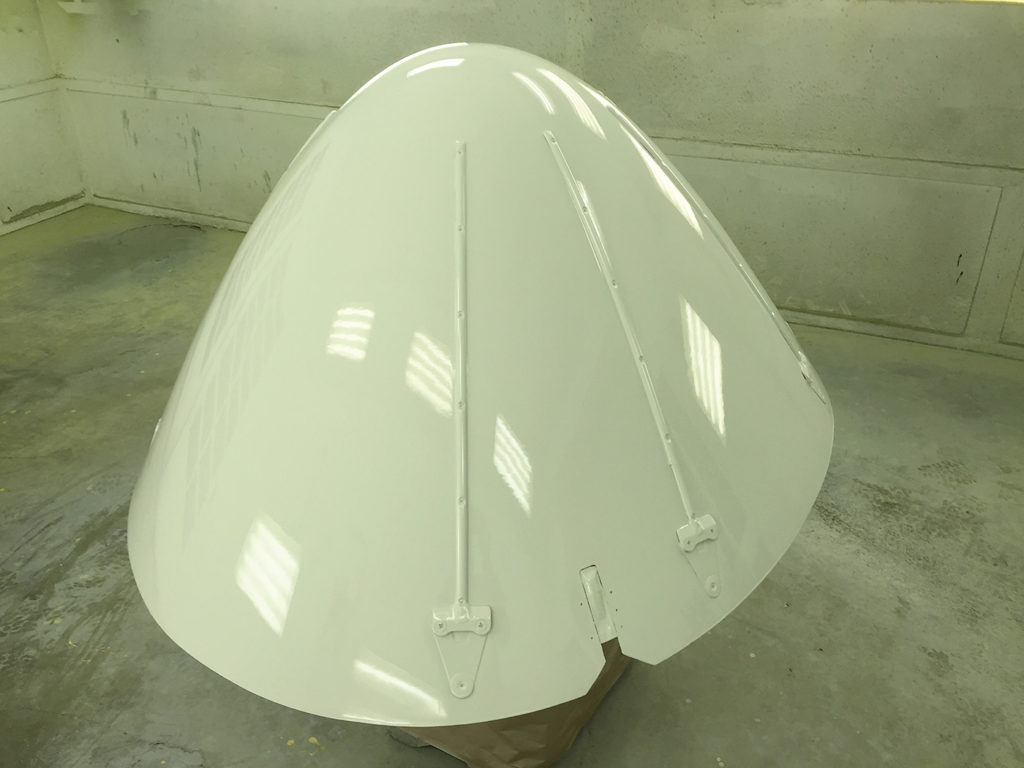
In response to a health and safety issue, Melissa and her brother, Chris–who is the company’s operations manager–said Genaire designed kick plates to fit around DND’s aircraft maintenance stands. These bring the stands up to code and act as a barrier to prevent toolboxes and other items from being inadvertently kicked to the hangar floor below.
In fact, Genaire–a third-generation family-owned company founded in 1951–has a long history of designing and supplying the military with a wide range of ground support and safety equipment. Jacks, towbars, engine stands, propeller slings, aircraft boarding ladders, dollies, lavatory servicing units and portable floor cranes are among the many items the company has produced for DND over the years.
Proud History
Following the Second World War, five Niagara-on-the-Lake residents–all former military members–realized there was a business opportunity in supplying DND with repair and overhaul services. The group of entrepreneurs included Gerald Wooll (Chris and Melissa’s grandfather), as well as Gib Forrester, Charles Graham, Harold Picken, and Val Sidlauskas.
Together, they formed General Air, shortening the name to Genaire when the company was incorporated in 1961.
Wooll–a former Royal Air Force de Havilland Mosquito pilot–was a patriot who insisted on using Canadian suppliers and materials, even if they cost a little more. He was a community-minded visionary who led the company through a significant growth period, expanding its product and service repertoire while growing the employee roster.

In 2000, Wooll’s daughter, Lorraine Warner, assumed control of the company. In 2017, her children, Melissa and Chris, bought out the majority of shares and took over the reins.
Today, Genaire’s business can be summed up in five categories: composite radome repair and testing, fuel cell repair/overhaul and storage, Twin Otter wheel skis, military pallet production, and ground support equipment.
Military contracts account for about 80 per cent of company revenues, while the remaining 20 per cent is derived from the commercial sector. Over the years, Genaire has worked with larger aerospace companies, including Cascade Aerospace, IMP, L3 and Field Aviation. Currently, it employs 32 full-time employees, 20 of whom are unionized.
All work is done from three locations: the aforementioned wartime-era Plant 1 at the airport; Plant 2, a 15,000-square-foot facility on King Street in old town Niagara-on-the Lake; and Plant 3, a 5,500-square-foot building at the airport that is used primarily for storage but is production-ready for overflow work requirements.
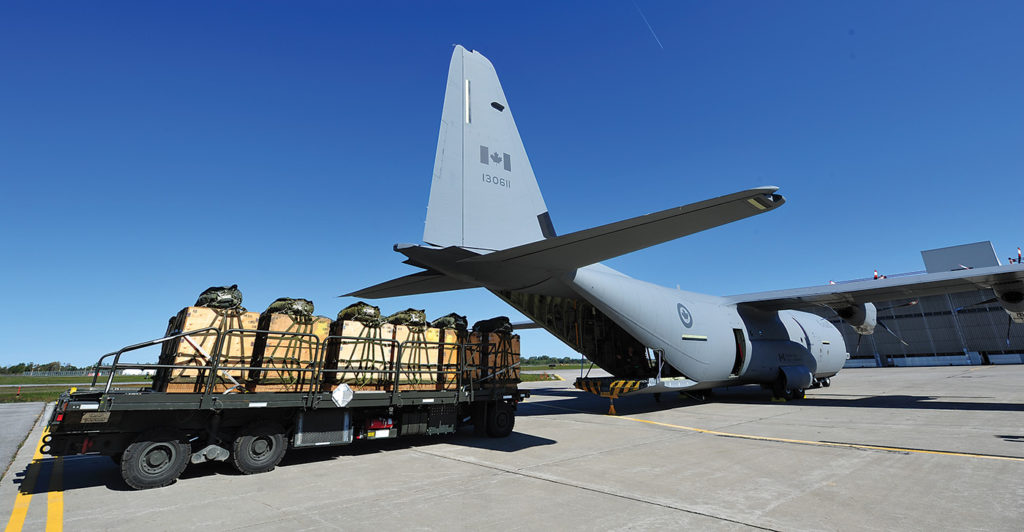
Genaire’s local roots run deep. Over the years, the company has also worked from some well-known Niagara buildings, including the Pillar and Post Hotel, once an old canning factory and the site of a helicopter rotor repair facility. The company’s avionics building was once based in what is today the Old Winery Restaurant.
Products and Services
Genaire first expanded into radome repair and testing in 1972; today, it remains one of only a handful of Canadian companies that performs both the repairs and transmissivity testing.
Radomes are smooth, dome-shaped covers that provide critical protection to fragile weather and target radar assemblies, which are typically located in the nose of an aircraft. But bird strikes, ramp mishaps, lightning strikes and even simple erosion can all damage that covering. At that point, it must be repaired, repainted and tested to ensure the radome still permits accurate transmissions between the aircraft and the outside environment.
“Again, we started out doing composite work for the Department of National Defence, and put in a test facility so we could test military weather radomes,” said Melissa. “Over the years, we found that we can use that same equipment to test some larger commercial radomes. Today, our composite shop does both military and commercial work.”
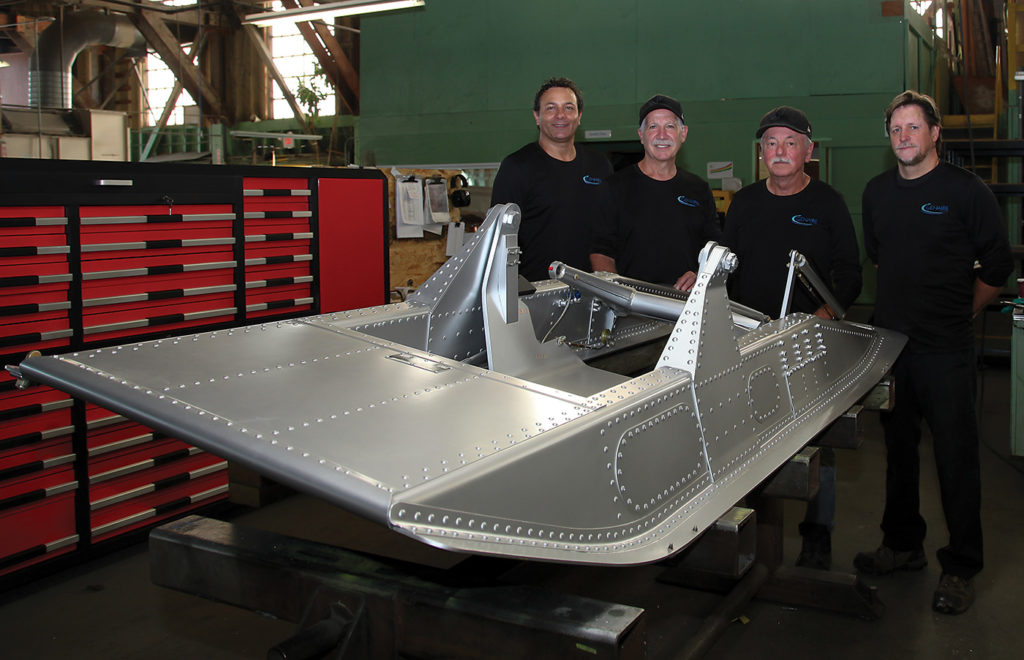
She said Plant 1 is where the “hammering and banging” is done, while Plant 2 is the only manufacturing facility that still exists in the old town of Niagara-on-the-Lake. That location is home to Genaire’s fuel cell division, where employees repair and overhaul nitrile rubber fuel cells (bladders) for most of the DND fleet, up to the CP-140 Aurora. In 2003, under the leadership of Lorraine Warner, the company became the first commercial enterprise to be approved as a national warehouse facility for DND assets. Fuel cells from most military aircraft types–from the CH-146 Griffon up to the CP-140 Aurora–are stored onsite in a temperature-controlled environment.
“To safely deal with jet fuel in a confined space, we put in a complete air makeup system that circulates the air every 20 minutes in the building,” said Melissa. “The building is also climate controlled so humidity is not a factor in terms of things like curing cements in that building.”
Genaire had been repairing DND fuel cells for many years. But once again, the company saw an opportunity to do more. “DND came to us at one point with an excessive number of installation failures and time-expired tanks coming out of their own depot, as cells were not being kept in optimal conditions or properly maintained in storage,” explained Melissa.
“There were really high levels of turnover; or, they’d get a tank installed and find out that it leaked. So Genaire developed a fuel cell maintenance program specifically for the Department of National Defence. We house all of their fuel cells at our facility.”
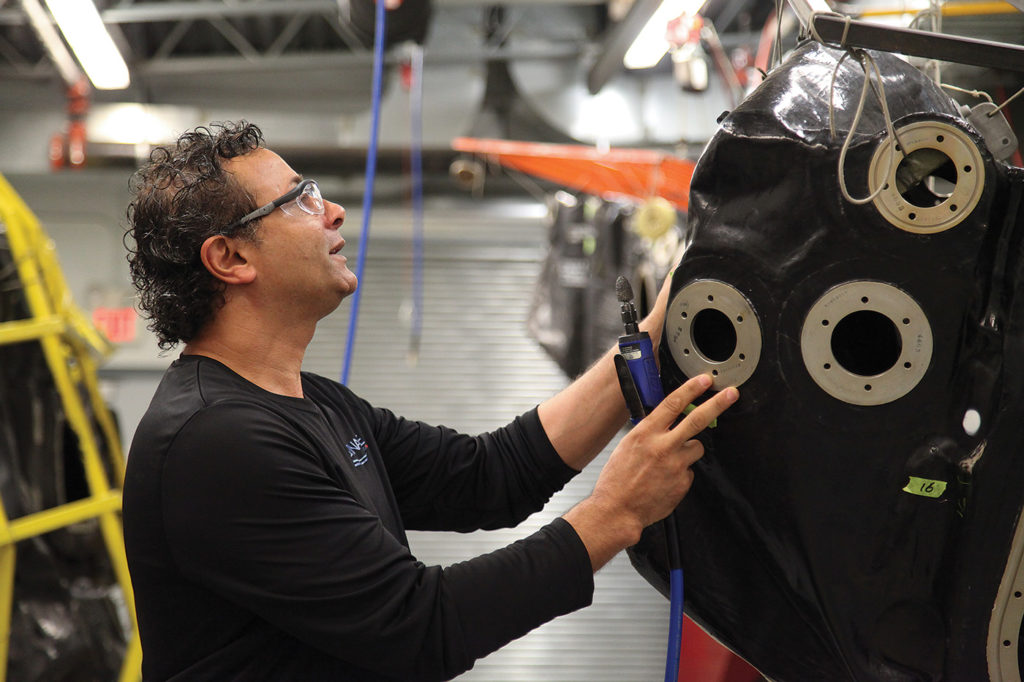
Each year, every fuel cell is inspected for physical degradation; the climate-controlled storage environment helps to prolong their lives. Genaire also oversees the rotation of the assets to ensure the first ones in are the first to go back out into service. The company currently houses 240 serviceable fuel cells in its depot; 230 tanks in repairable reserve; and 60 in various stages of repair and overhaul.
Melissa and Chris are proud of the company’s expertise in fuel cell repair and overhaul.
“We have tanks from the ’80s that are still serviceable and still flying for the F-18 fleets in particular; the Sea King fleet has just been decommissioned, but we’ve been able to maintain tanks for them for a number of years, especially during their wind-down phase where they didn’t want to have to buy new assets.”
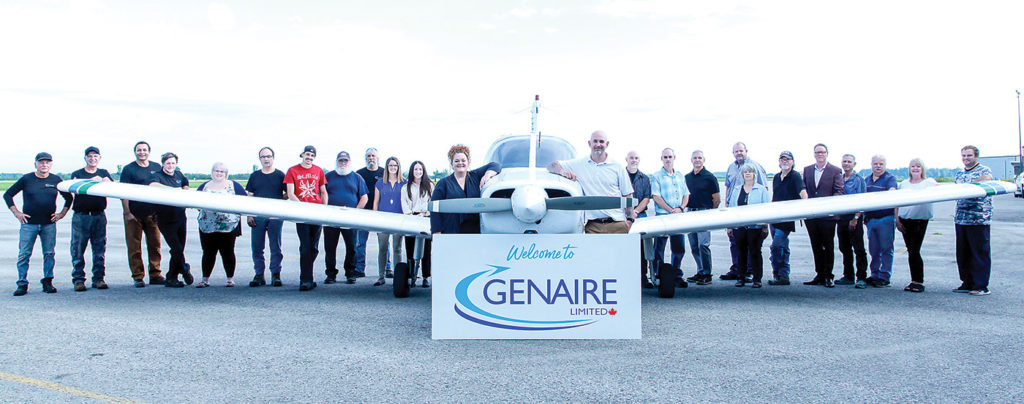
She added that fuel cells often come from the manufacturer with a 10-year service life, but Genaire can keep them flying for three to four times as long.
“That’s significant to our customers. It also means that they can have potential spares. It takes a long time from when they place an order to when they receive it–sometimes years or multiple years before orders are delivered from manufacturers. So ensuring they have these assets they can use as they’re buying a new product is beneficial to all of our customers.”
Since it was founded, Genaire has thrived on supporting Canada’s military. So it’s no surprise that the Niagara company plays a key role in ensuring the continued versatility of the de Havilland Canada DHC-6 Twin Otter.
The RCAF currently operates four DHC-6 aircraft (designated CC-138 Twin Otters) with 440 Transport Squadron in Yellowknife, N.W.T. The high-wing turboprops play a crucial transport and support role in northern operations as well as participating in search and rescue missions. A great deal of their versatility comes from the fact they are equipped to operate on both wheels and skis, thanks to Genaire.
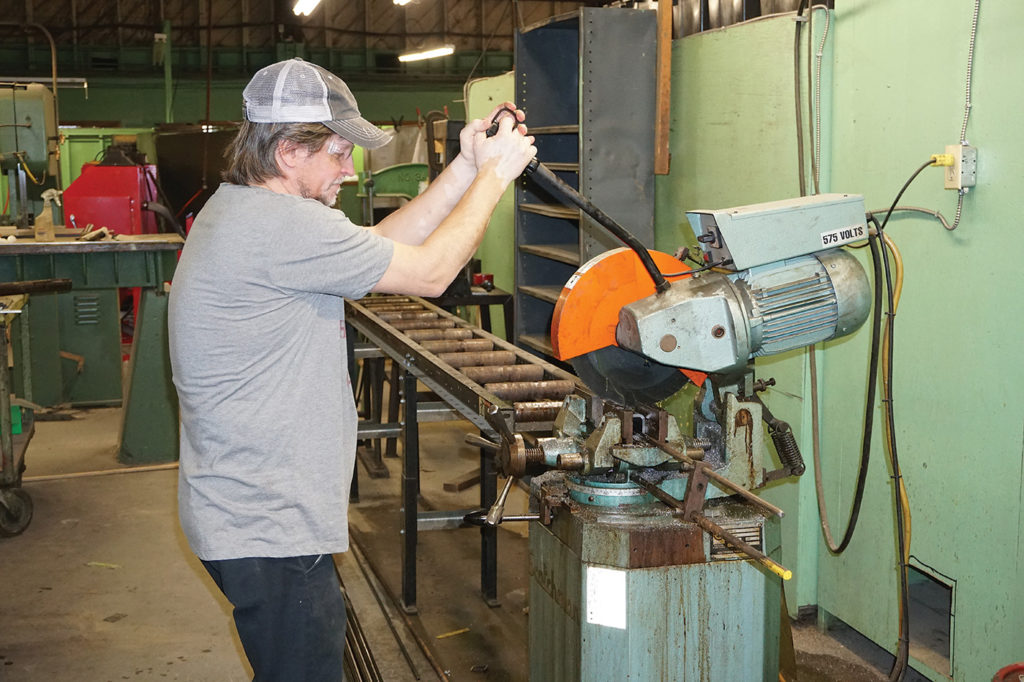
In 1985, the aerospace company purchased the sole manufacturing rights, along with engineering and tooling, for Bristol Twin Otter wheel skis. These allow the legacy DHC-6 to land on unprepared snow or ice. When cued by the pilot, the aircraft’s hydraulic system activates a sling on each ski, drawing it down under the wheel to create a flat ski surface.
It’s a time-tested design that continues to serve not only the RCAF but also civilian operators of legacy Twin Otters flying in the world’s harshest environments. While the demand for these skis and their parts varies from year to year, their production is a good example of traditional aviation craftsmanship. Genaire has modernized the manufacturing process through water jetting parts and the creation of assembly jigs, but the skis are still riveted and carefully finished by hand.
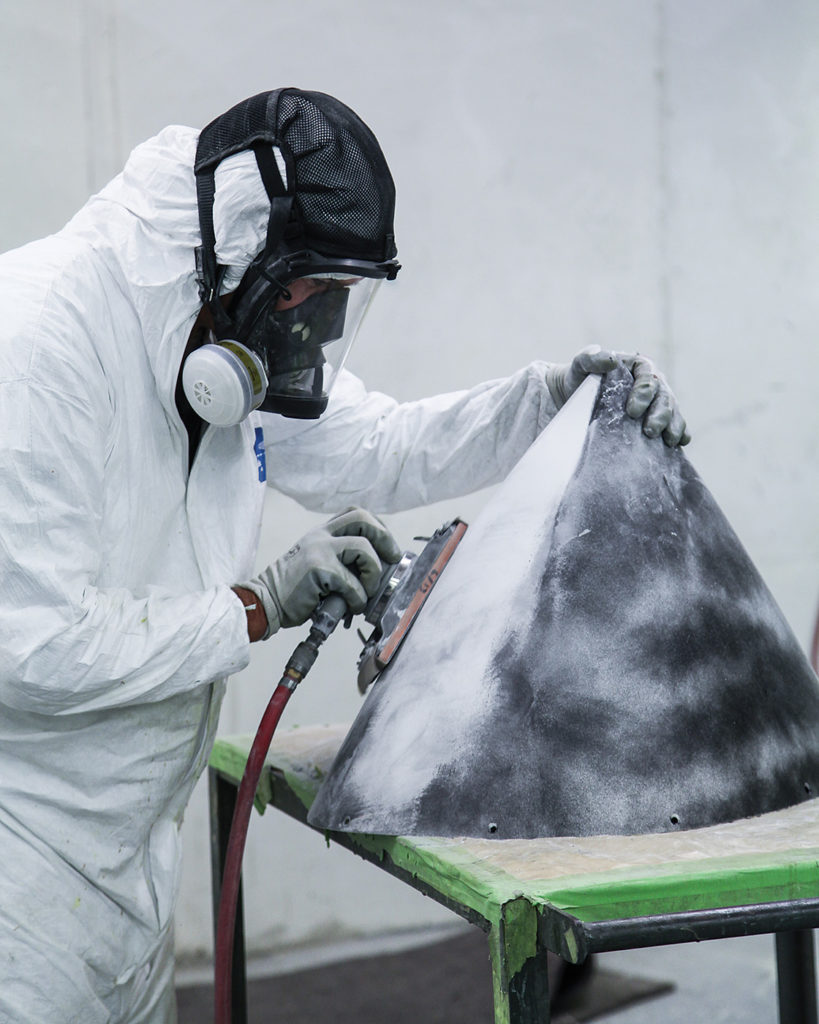
Currently, the company supplies more than a dozen Canadian operators, including the military, with parts and service for Genaire skis.
Future Focus
To Melissa and Chris, taking over the family business is both an honour and a privilege–and it’s also a challenge they take very seriously. In many ways, Genaire earns its bread and butter doing the “down and dirty” manual work that other companies don’t want to tackle.
Melissa, who was celebrating her 18th year with the company on the day Skies visited Genaire, started as an administrative assistant and worked her way through various other positions, including person responsible for maintenance (PRM), before she and Chris acquired the shares of the company in 2017.
Chris started in 2006 as a unionized employee and supervised Plant 2 from 2009 to 2017.
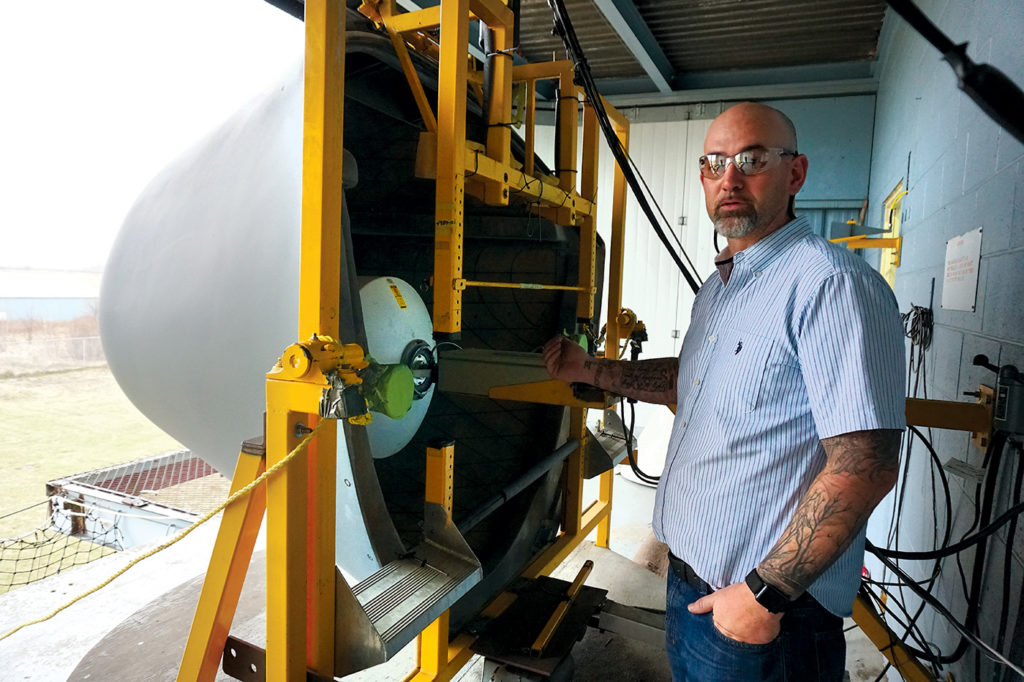
“We purchased the shares because we felt it was important for us to have skin in the game, so to speak,” said Melissa. “We wanted our staff to see that we had an investment in the company. It was important to us that they understand it wasn’t simply handed to us to run, and that it was a choice we were making; that because we have an investment we weren’t just going to let the company continue as it always had. We were looking to improve it.”
Together, the sister-brother duo is mapping the future of this third-generation, proudly Canadian company.
“When Chris and I took over the company, there were a lot of things that Genaire had gotten out of, and we didn’t really know the reasons why, so we’re looking at all those things again and determining what direction to take the company in. We’ve also made it very clear to the staff that we want their input,” said Melissa. “They have great ideas and together we need to determine what’s going to be viable five or 10 years from now.”
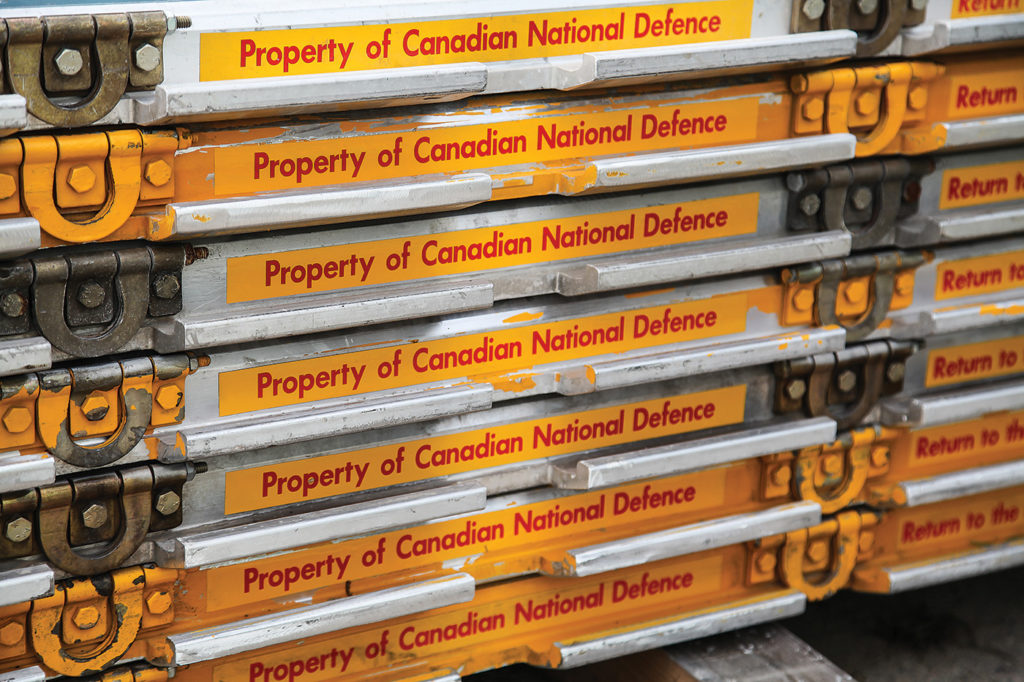
Composite work is one area that has been targeted for expansion. In addition to radome repair, the company’s business development manager, Anthony Gigliotti, is working to broaden Genaire’s portfolio to include wingtips, doors and other composite components.
Another area of potential growth is ground support for commercial operations. “Certainly, there’s ground support equipment at every aircraft, at every facility that’s dealing with airplanes, so the volume is there and keeping some of that older equipment operating is our specialty,” said Melissa.
The CH-124 Sea King maritime helicopter is just one of the RCAF aircraft types that will be decommissioned over the next few years, and Melissa and Chris are mindful of how that will affect the fuel cell division, which is currently the foundation of their business.
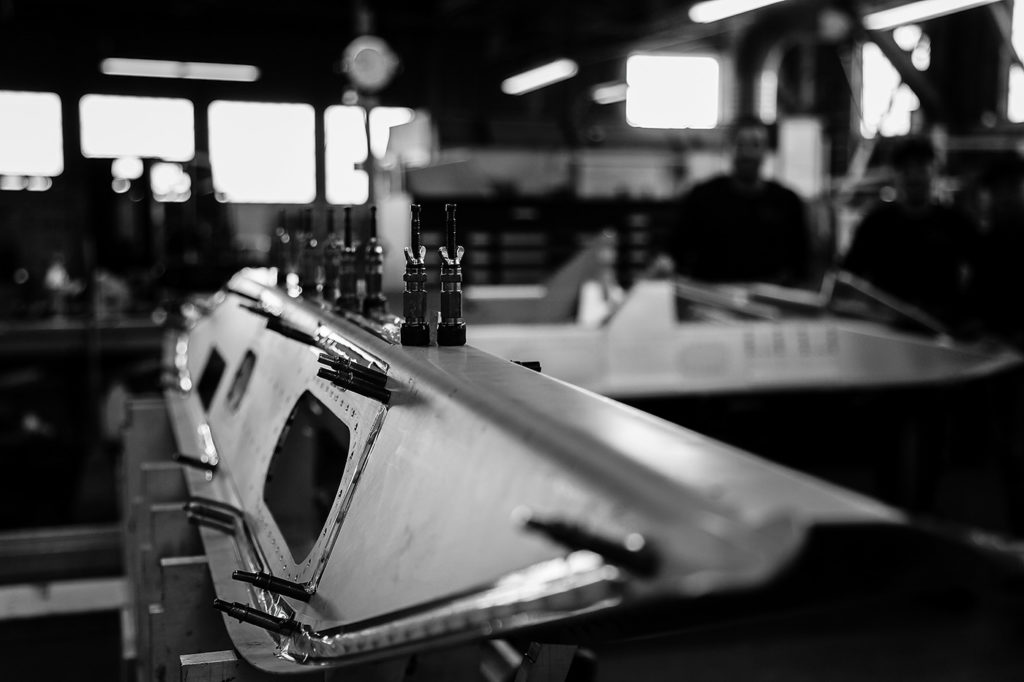
“We know that some of those big contracts, particularly in fuel cells, are potentially coming to a close. That would be big for Genaire. So we know we need to pivot to do other things. We’re looking at certification for some European fuel cell manufacturers as well.”
The idea, said Melissa, is to stay within the same areas of specialty, but expand either through different product lines or different markets.
Chris said the company is even investigating certification to work in the racecar industry, which uses the same type of fuel cells.
“Growing up in the family that we grew up in, being a Canadian-owned business, supporting our troops, supporting the Department of National Defence, has always been key to us,” Melissa continued. “Being able to be a part of that is something that Chris and I have always believed in and continue to support going forward; but we recognize, as business owners, that some things need to change over time.”
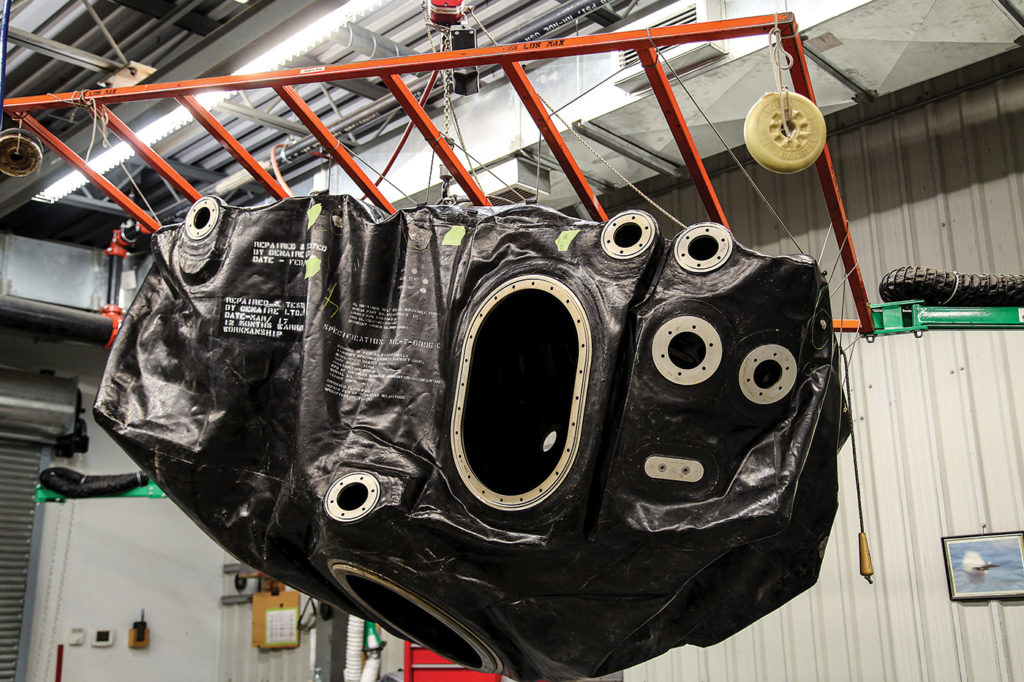
“Tell us your problems”
Over the years, customers have knocked on Genaire’s door and found solutions to their various challenges. Now, the company is opening that door and stepping outside to find out who else might need their services. That’s why Melissa and Chris made the decision to hire Gigliotti in the marketing role.
What is the message he is delivering?
“No problem is too big or too small,” said Melissa. “Genaire can assist large companies and single operators.”
She said the company is versatile with its Transport Canada approved maintenance organization (AMO) designations for manufacturing (pallets and skis) and for maintenance (NDT, structures and components). An in-house engineer is another resource that can be called upon.
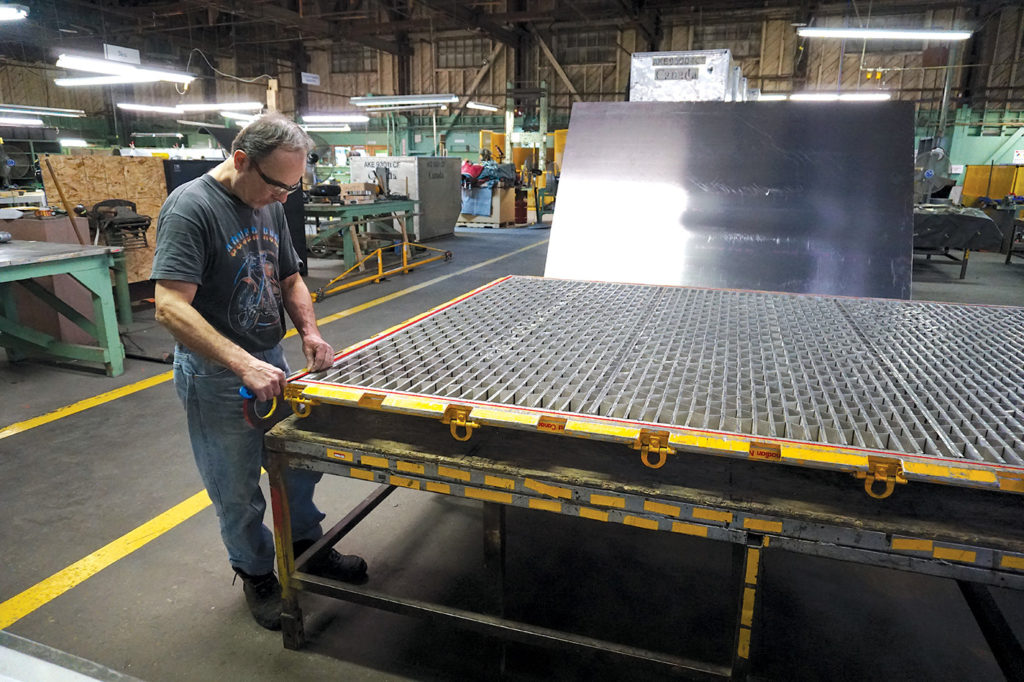
“As people come up with problems and they don’t know where to turn, try Genaire. We’re looking for new opportunities and new partnerships.”
As a proudly Canadian, third-generation family business, the company treasures its history. But its focus in 2019 is very much on the future.
“Genaire is open for business.”
